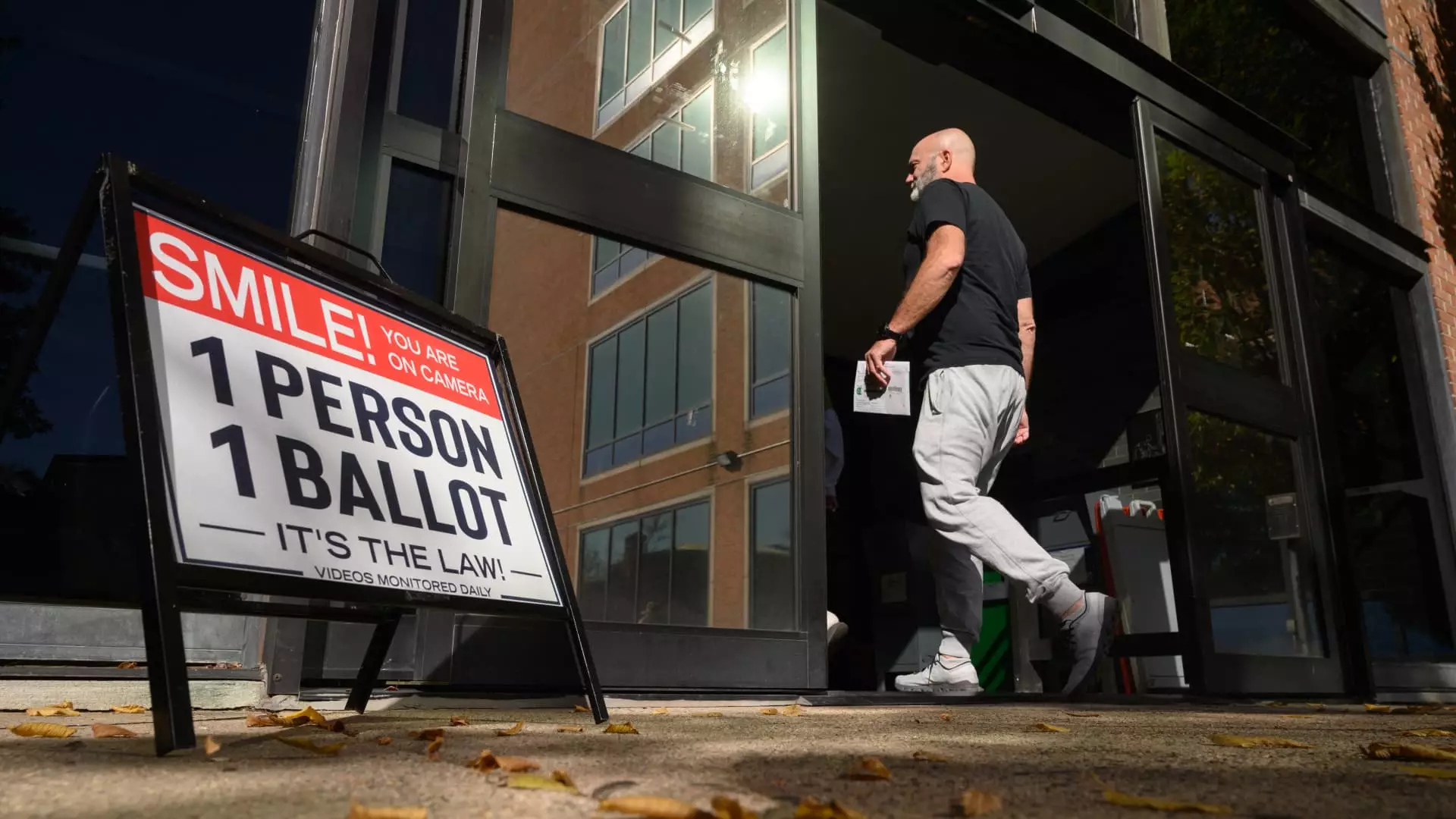The United States Supreme Court’s recent decision regarding mail-in ballots in Pennsylvania has added yet another chapter to the saga of contentious electoral practices, particularly in swing states like Pennsylvania. This ruling is significant not only for its immediate impact but also for the broader implications it holds for voting laws amid ongoing partisan debates about election integrity and accessibility.
On a recent Friday, the Supreme Court rebuffed Republicans’ appeal to halt a ruling by Pennsylvania’s state Supreme Court that allowed voters to submit provisional ballots even if their mail-in ballots were deemed potentially defective. This procedural safeguard raises critical questions about voting rights and the proper application of electoral laws, particularly how technicalities can impact voter participation. Justice Samuel Alito, while expressing acknowledgment of the debate’s importance, noted that the Court had compelling reasons not to intervene at this juncture. His perspective is particularly telling, as it reflects a complex balancing act between upholding election integrity and ensuring voter access. Joined by fellow conservative justices Clarence Thomas and Neil Gorsuch, Alito’s stance underscores the Court’s cautious approach to politically charged cases.
The dispute stems from the “long-completed” Democratic primary in Butler County, wherein two voters, Faith Genser and Frank Matis, submitted ballots that were subsequently ruled invalid due to a lack of required secrecy envelopes—a standard mandated by state law. When notified of the disqualification, these voters opted to cast provisional ballots in-person. The legal ramifications of this case extend far beyond a few individual ballots; it has the potential to affect thousands of voters during the upcoming general election, especially given that Pennsylvania holds a critical position in the electoral landscape.
Republicans argued that the state’s interpretation of its election laws must be strict: any ballot failing to conform to specific requirements should simply be discarded, thereby denying voters a second chance to cast their votes in person. On the flip side, the state courts maintained that the provisional ballot process serves as a necessary remedy to prevent disenfranchisement due to technical errors.
This ruling becomes part of a larger tapestry of legal battles related to electoral processes that Republicans are engaging in ahead of the 2024 general election. The Republican National Committee has filed multiple lawsuits in swing states, echoing rhetoric concerning alleged widespread election fraud—a narrative largely fueled by former President Donald Trump. The broader legal strategy seems to hinge on undermining the credibility of mail-in voting practices, a contentious topic that was especially pronounced during the 2020 elections when Democrats pushed for increased accessibility in response to public health concerns due to COVID-19.
Critics argue that such legal maneuvers are aimed more at suppressing voter turnout than at genuinely addressing election integrity. The legal battles have the potential to create confusion and uncertainty, further complicating an already fraught political climate as the nation approaches another election cycle.
The Constitutional Debate: Election Rules and Legislative Authority
At the heart of the litigation lies a constitutional question concerning the extent of state legislatures’ authority over election processes. Last year’s Supreme Court ruling cast some doubt on the “independent state legislature” theory, which proponents claim grants legislators broad powers to dictate election rules without interference from state courts. The implications of this theory could lead to a significant re-examination of how elections are administered, shedding light on the tensions between judicial oversight and legislative authority.
In this context, Pennsylvania’s state Supreme Court’s ruling has raised alarms among conservatives who believe that the judiciary is overstepping its boundaries—an argument that was particularly vocal during the tumultuous 2020 election cycle. Such disputes raise pivotal questions about the future of electoral laws and voter rights, particularly in states that will be closely contested in the next election.
Concluding Thoughts: A Changing Landscape of Voting Rights
As the 2024 elections loom, the intersection of judicial decisions, legislative authority, and electoral access will remain contentious. The recent Supreme Court ruling in Pennsylvania not only exemplifies the current legal battles surrounding mail-in voting but also reveals deep-seated divisions in American politics over how elections should be conducted. As states navigate this complex landscape, voters must remain vigilant and informed about their rights and the evolving legal frameworks that govern their participation in democracy. Ultimately, the balance between ensuring election integrity and promoting accessible voting will be critical in shaping the political culture in the United States.

Leave a Reply